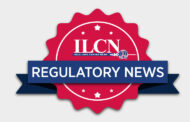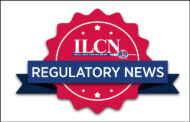Posted: April 2017
By Erik T. MacLaren, PhD
On January 11, the National Cancer Institute (NCI) launched a virtual agent formulary (NCI Formulary): a new public-private partnership designed to speed access to targeted therapies and combinations of cancer-fighting drugs by oncology researchers at the 69 NCI-Designated Cancer Centers. IASLC Lung Cancer News discussed the details of the NCI Formulary with Sherry Ansher, PhD, Associate Chief of the Regulatory Affairs Branch, Cancer Therapy Evaluation Program, and Jason Cristofaro, JD, PhD, Intellectual Property Program Manager, Office of the Director, from the Division of Cancer Treatment and Diagnosis, NCI.
Negotiating agreements between individual investigators and drug companies to use proprietary therapeutic agents is complex and can take up to 18 months, which often delays the start of important pre-clinical and clinical trials. The NCI expects that such delays will become even more common, due to increased genetic testing as a standard part of cancer therapy as well as the greater use of targeted agents. The NCI Formulary was designed to mitigate such delays and to contribute to the goals of the Cancer Moonshot by increasing collaboration and speeding the development of new treatments.
“Many of these agents are not generally available for clinical studies that are not sponsored by the company or are only available to investigators after lengthy negotiations with the investigators’ institutions,” said Dr. Cristofaro. “The NCI Formulary eliminates the need for investigators to negotiate agreements independently, making the agents available for use.”
In trials testing Formulary agents for unapproved purposes, an Investigational New Drug Application (IND) may be required, according to Dr. Ansher, who explained that this “…is a decision made by the FDA upon submission of the protocol/IND and is based on the patient population, dose and schedule of the agent, and potential of increased risk.” Should an IND be required, it would be sponsored by the receiving investigator, he added, saying, “Industry partners have agreed to provide letters of cross-reference in support of approved studies.”
At its launch, the NCI Formulary had Clinical Cooperative Research and Development Agreements (CRADAs) with 6 pharmaceutical companies that covered the use of 16 targeted drugs, and more are expected soon. Dr. Cristofaro noted that this response exceeded the NCI’s original goal of 5 collaborators and 10 agents and that the number of agents is expected to double during the first year of the NCI Formulary.
Although the Formulary is open to trials in all cancer types, many of the agents available are known or suspected to be effective for treating thoracic cancers (agent list available at http://nciformulary.cancer.gov/available_ agents/default.htm). Additionally, Dr. Ansher hoped that this new partnership would be especially helpful to investigators who want to test new combinations of targeted therapies manufactured by different companies and requiring multiple agreements, a problem neatly solved by the Formulary.
Participation in the NCI Formulary is open to NCI-registered investigators from NCI-Designated Cancer Center sites in good standing. However, agents from the Formulary may be tested in combination with other Formulary agents or marketed agents only; combinations with investigational agents from other sources are not permitted. Detailed information about the NCI Formulary can be found online.1
The NCI Formulary complements another planned public-private partnership in oncology called the Partnership to Accelerate Cancer Therapies (PACT), in which the National Institutes of Health and the FDA will work with foundations, advocacy organizations, and private sector biopharmaceutical groups to identify and validate biomarkers for use with cancer therapies.2 PACT is expected to launch later in 2017. ✦
1. NCI Formulary website available at http://nciformulary.cancer.gov/.
2. New Drug Formulary Will Help Expedite Use of Agents in Clinical Trials. NCI Press Release. January 11, 2017. Available at http://www.cancer.gov/news-events/press-releases/2017/nci-formulary– launch.





